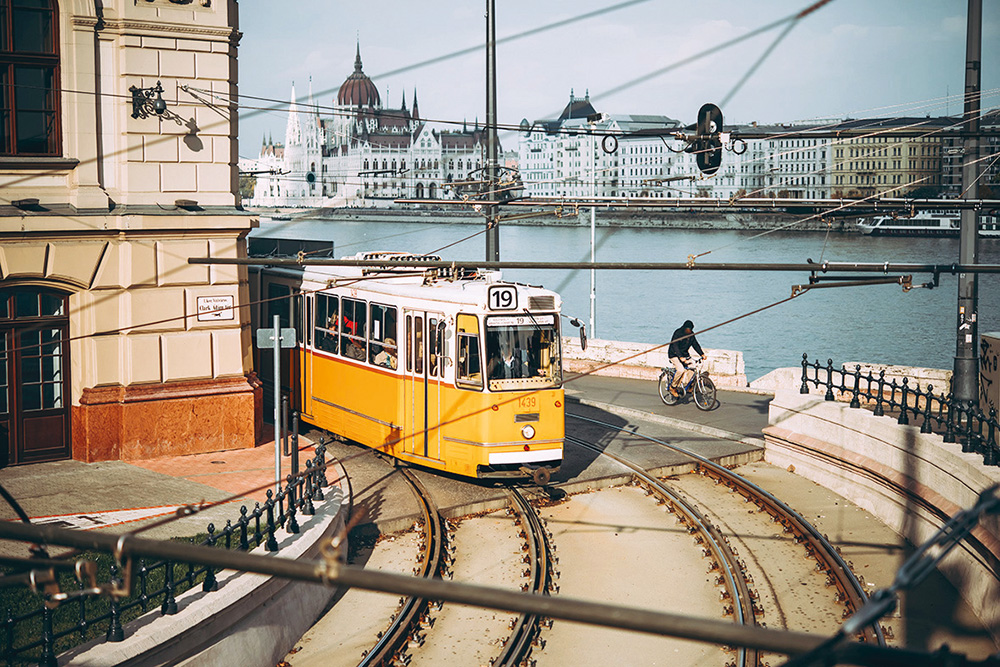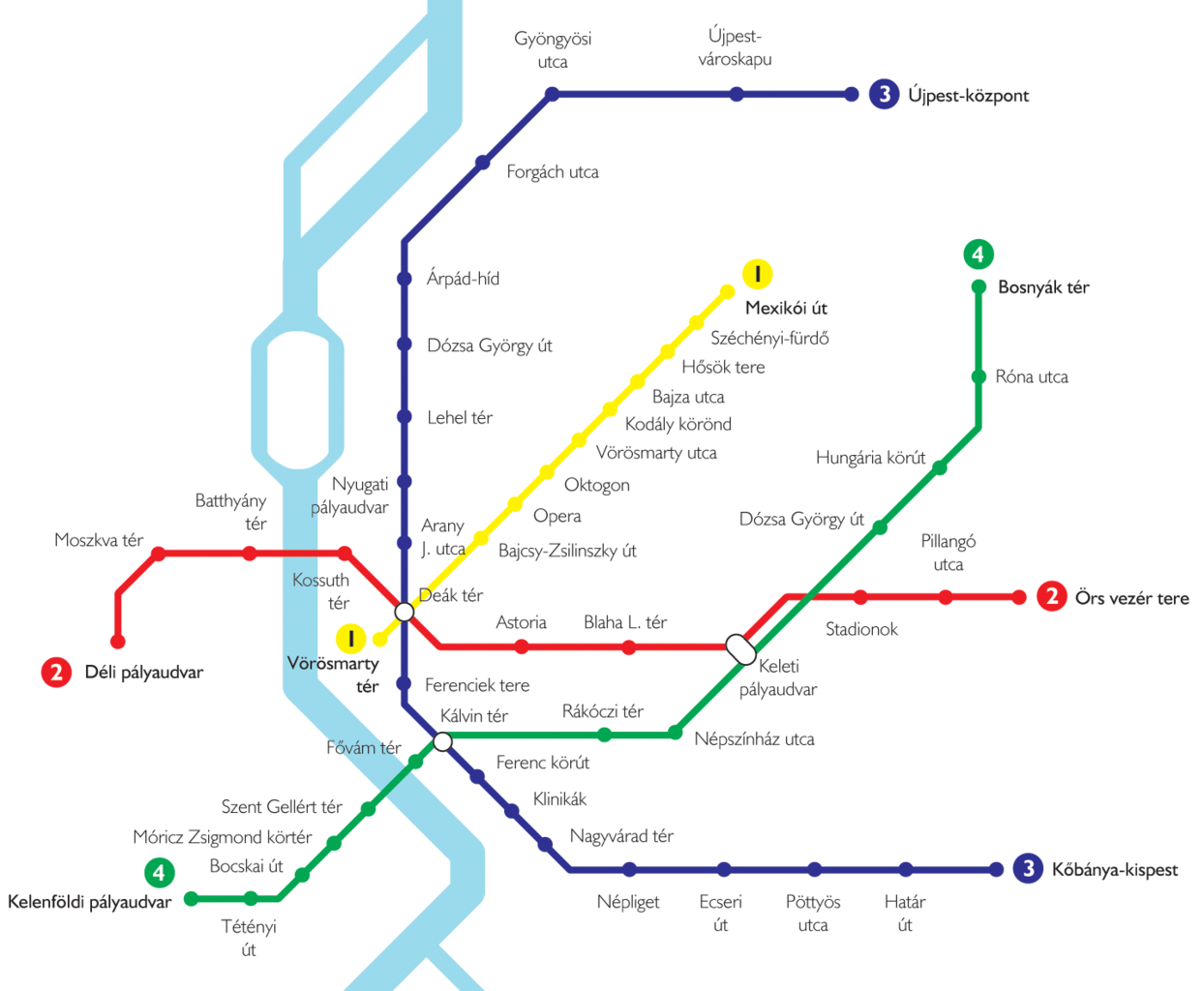Public Transportation
Hungary has an efficient network of public transport including buses in all cities, trolley buses and trams in bigger cities, metro services plus suburban railway lines called HÉV lines and boat services in Budapest.
Passes are available for various lengths of time (e.g. monthly) and are valid for each form of transport. Tickets that can be used on any form of transport are available at stations or street kiosks. Single tickets are valid for a single journey without transfer on the whole length of a line, but multiple tickets are needed when your journey involves changes.
If you regularly use public transport, it is economically more viable to buy a monthly or yearly pass. Students with valid student card are entitled to reduced rates.
Coach nationwide: www.volanbusz.hu/en
Budapest public transportation: www.bkk.hu/en
Hungarian state railways: www.mavcsoport.hu/en

Metro
 Budapest metro has four lines:
Budapest metro has four lines:
- M1: the Yellow Line between Vörösmarty tér and Mexikói út. In fact, this was the first subway line in Mainland Europe, and was opened in 1896 for the Hungarian Millennium.
- M2: the Red Line between Déli pályaudvar and Örs vezér tere.
- M3: the Blue Line between Újpest Központ and Kőbánya-Kispest.
- M4: the Green Line between Kelenföld vasútállomás and Keleti pályaudvar.
By car
If you are coming from an EU Member State to Hungary, you do not need a Hungarian driving license to drive in Hungary but you need to keep all car documents, your driving license and passport with you to identify yourself when stopped by a police officer. But if you plan to stay in Hungary for more than a year and you have a driving licence issued by a non-EEA State you can apply to have the document exchanged.
Hungary has a zero tolerance policy towards drink-driving offences.
By taxi
When taking a taxi, you should avoid hailing unmarked taxi cabs. You can hail a taxi in the streets, order by phone or an app. In Budapest, licensed taxis appear in distinct yellow.
By bike
You can easily buy a brand new bike in many big stores or even a good quality old one in some second-hand bike shops. Another option is renting from a company or using a bike-share scheme such as MOL BuBi in Budapest or UniBike in Debrecen. Whichever option you choose our environment will be grateful.
Trains
Most train lines in Hungary use Budapest as a central point, which is the most common place for transfers. Although the train network has lines connecting cities and towns, to reach your final destination quickly, it is sometimes faster to travel through Budapest.
Budapest has three major train stations: the Eastern Railway Station (Keleti pályaudvar) and the Southern Railway Station (Déli pályaudvar), both of which are situated at stops along metro line M2 (Red Line), and the Western Railway Station (Nyugati pályaudvar), which is situated on metro line M3 (Blue Line).
Related website: MÁV-Group
Coaches
If you travel outside Budapest, you can also take a coach. Most coach drivers sell tickets on the coach, but to secure seat reservations, the tickets should be purchased in advance.
Related website: Volan Bus
Coach stations in Budapest:
- Stadionok | Budapest District 14, Hungária körút 48-52. (on metro line M2) | Coach departures to eastern Hungary.
- Árpád-híd | Budapest District 13, Árbóc u. 1-3. (on metro line M3) | Coach departures to Pilisvörösvár and Szentendre.
- Népliget | Budapest District 9, Üllői út 131. (on metro line M3) | Coach services to Transdanubia and international coach services.
- Etele tér | Budapest District 11, (take Bus 7E to get here) | Departures to Biatorbágy, Érd, and Százhalombatta.
- Széna tér | Budapest District 1, (take Tram 4 or 6 to get here) | Departures to Zsámbék and the Zsámbék area.
Boat services
Budapest has 3 public boat lines:
- D-11: Kopaszi-gát (Rákóczi híd)–Újpest, Árpád út
- D-12 and D-13: Kopaszi-gát (Rákóczi híd)–Rómaifürdő
-
The services operate form 6.30 till 20.30, but lines D-11 and D-12 are in operation only on weekdays.
Public transportation of Hungarian big cities: